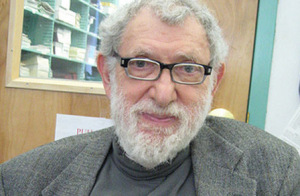A Quote by Carl Sandburg
Poetry is the harnessing of the paradox of earth cradling life and then entombing it.
Related Quotes
So how can we test the idea that the transition from nonlife to life is simple enough to happen repeatedly? The most obvious and straightforward way is to search for a second form of life on Earth. No planet is more Earth-like than Earth itself, so if the path to life is easy, then life should have started up many times over right here.
I don't know that I had a sense that there was such a thing as "the poetry world" in the 1960s and early 70s. Maybe poets did, but for me as an onlooker and reader of poetry, poetry felt like it was part of a larger literary world. I mean, even the phrase "the poetry world" reflects a sort of balkanization of American literary and artistic life that has to some extent happened since then.
Think about the strangeness of today's situation. Thirty, forty years ago, we were still debating about what the future will be: communist, fascist, capitalist, whatever. Today, nobody even debates these issues. We all silently accept global capitalism is here to stay. On the other hand, we are obsessed with cosmic catastrophes: the whole life on earth disintegrating, because of some virus, because of an asteroid hitting the earth, and so on. So the paradox is, that it's much easier to imagine the end of all life on earth than a much more modest radical change in capitalism.
Writing is both the excursion into and the excursion out of one's life. That is the queasy paradox of the artistic life. It is the thing that, like love, removes one both painfully and deliciously from the ordinary shape of existence. It joins another queasy paradox: that life is an amazing, hilarious, blessed gift and that it is also intolerable.
Out of the darkness of my life, so much frustrated, I put before you the one great thing to love on earth: the Blessed Sacrament....There you will find romance, glory, honor, fidelity, and the true way of all your loves upon earth, and more than that: death: by the divine paradox, that which ends life, and demands the surrender of all, and yet by the taste (or foretaste) of which alone can what you seek in your earthly relationships (love, faithfulness, joy) be maintained, or take on that complexion of reality, of eternal endurance, that every man's heart desires
The earth is not a mere fragment of dead history, stratum upon stratum like the leaves of a book, to be studied by geologists and antiquaries chiefly, but living poetry like the leaves of a tree, which precede flowers and fruit ~ not a fossil earth, but a living earth; compared with whose great central life all animal and vegetable life is merely parasitic. Its throes will heave our exuviæ from their graves ... You may melt your metals and cast them into the most beautiful moulds you can; they will never excite me like the forms which this molten earth flows out into.







































